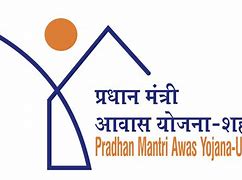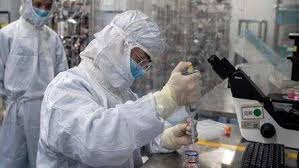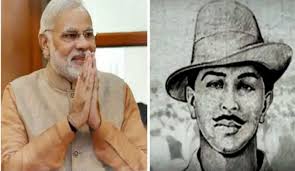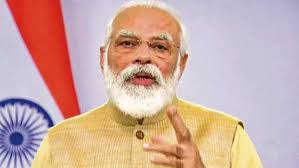National
Only 16 of every 250 fake notes detected in India
Is India doing enough to detect fake notes, cited by the Prime Minister Narendra Modi as a significant reason for withdrawing 86 per cent of India’s currency, a process popularly known as “demonetisation”?Apparently not. In 2015-16, only 16 of every 250 fake notes were detected, according to an IndiaSpend analysis of government data.
Modi cited terrorism financed by fake Indian currency as a major reason for invalidating the Rs 500 and Rs 1,000 notes that made up 86 percent of money in circulation. On November 9, in response to Telugu filmstar Nagarjuna’s tweet praising “demonetisation” — Modi tweeted: “Dear @iamnagarjuna, this step will check corruption, black money and fake currency rackets that slow our progress.”
Of the 90.26 billion Indian currency notes in circulation in 2015-16, no more than 0.63 million — that is 0.0007%, or seven-millionths of 1 per cent, seven in every million — were detected as fake, according to Reserve Bank of India (RBI) data. The value of these fake notes in 2015-16 was Rs 29.64 crore, which is 0.0018 per cent of the Rs 16.41 lakh crore currency in circulation.
In 2015, 0.88 million fake notes worth Rs 43.8 crore were seized, according to data from the National Crime Records Bureau tabled in the Lok Sabha on November 18. Rs 27.8 crore was seized until September 30, 2016, the data further reveal. The value of fake currency in circulation at any given time is Rs 400 crore, and 250 in every million notes are fake, according to a 2015 joint study by the Indian Statistical Institute and National Investigation Agency, to analyse fake-currency trends, especially those originating across India’s borders.
The study estimated that fake currency worth Rs 70 crore enters circulation every year, with agencies only being able to intercept one-third of it. The detection of fake currency is carried out primarily by commercial banks, but such reporting is irregular: Only three banks — Axis, HDFC and ICICI — report about 80 per cent of fake currency detected.
In 2012, the then Finance Minister Pranab Mukherjee wrote a white paper on black money in India, which revealed that the cash component of undisclosed incomes ranged from 3.7 per cent to 7.4 per cent, based on searches conducted by the Central Board of Direct Taxes. For instance, in financial year 2011-12, of undisclosed admitted income of Rs 9,289 crore, no more than Rs 499 crore (5.4 per cent) was found in cash, according to the white paper.
On November 17, Sitaram Yechury, General Secretary, Communist Party of India (Marxist), tweeted: “Black economy is only 6% Cash, rest wired. Counterfeit currency 0.025% of total currency. So what is the Demonetisation move targeting?” Yechury’s claim was based on a Hindustan Times analysis of data from tax raids for the financial year 2012-13 onwards. Cash recovered was less than 6 per cent of the undisclosed income seized from tax evaders, said the newspaper.
Data from income-tax investigations between April 1 and October 31, 2016, revealed that black-money holders accepted having Rs 7,700 crore worth of unaccounted assets; of this, Rs 408 crore, or 5 per cent, was cash. The rest was invested in business, stocks, real estate and benami bank accounts, the data showed. In 2015-16, a year that reported the largest detection of black-money, 6 per cent was cash.
“While, in the public eye, piles of cash are synonymous with corruption, we should be careful about distinguishing between the three components of black economy. The first is the underlying source of corruption. An example of this would be the high stamp duties on real estate transactions that lead to payments in cash. The second is the methods adopted for storing unaccounted wealth. An example of this would be holding assets in gold. The third element is the method through which transactions are effected. This could involve cash,” Vijay Kelkar and Ajay Shah wrote in the Mint.
National
Foodman Vishal Singh Honored for Hunger Free World Mission in Bangkok

Lucknow: Vishal Singh, a renowned social worker from Lucknow, also known as Foodman, has once again made India proud. He was honored by the Happy Hands Gloves Cooperative Limited Company in Korathai, Thailand, for his work with the Hunger Free World Mission.
The Hunger Free World Mission’s meeting was held in Korathai, Thailand, under Vishal Singh’s leadership. Representatives from several countries, including Mr. Raja Dwivedi (Managing Director of Happy Hands Gloves Limited), Thailand Coordinator Mr. Raja Mishra, and member Mr. Varun Singh, attended the event.

Under Vishal Singh’s leadership, the attendees took a pledge to work together toward creating a hunger-free world.
Speaking on the occasion, Vishal Singh explained that the main goal of the Hunger Free World Mission is social participation. He said the mission is not just about feeding people but also about meeting other basic needs of those who are struggling. The mission focuses on helping families of terminally ill patients in hospitals by providing food and shelter. It also works to fulfill essential needs like education, jobs, and care for the elderly.
For the last 16 years, the Vijay Sri Foundation has been providing free services, benefiting thousands of people. Vishal Singh highlighted that the mission aims to gain global recognition like other organizations such as WHO, WWF, and Red Cross, which work for social causes.
During this meeting, Vishal Singh was appointed as the Chairman of the Hunger Free World Mission by representatives from various countries. They also discussed holding regular meetings in different countries to push the mission forward.
Business tycoon Dr. Abhishek Verma has also supported this humanitarian mission, vowing to promote the idea of “Seva Parmo Dharma” (Service is the highest duty) worldwide. Vishal Singh praised him, stating that people like Dr .Abhishek Verma inspire others to work for the betterment of society.
Recently, Romania’s Ambassador, Mr . Daniela Sezonov Ţane, invited Vishal Singh to the Romanian Embassy in Delhi, where they discussed the mission in detail. Impressed by his humanitarian work, she honored Vishal Singh and invited him to Romania to take the mission forward .
Food man Vishal Singh has been serving the people of India for the past 16 years. Through the Vijay Sri Foundation, he provides free meals to cancer patients & their families ,shelter, and education for women & children along with running free old-age homes in Lucknow.
In addition to his humanitarian work, Vishal Singh also addresses issues like crime and corruption through his role as Chairman of Seva Path Media and Managing Director of Vijay Sri Foundation.

During the COVID-19 pandemic, Vishal Singh and his team worked tirelessly to provide food and help to the needy, including starving children, elderly citizens, and pregnant women. Despite contracting the virus himself, he continued to assist others after his recovery. He even created a life-saving oxygen regulator using household items, which was praised by doctors both in India and abroad.
In his address at the meeting, Vishal Singh spoke about his mission to create a hunger-free world. He pointed out that India’s large population, along with issues like unemployment and poverty, has caused the country to fall on the Hunger Index. He urged people to contribute just one handful of grains daily to help create a hunger-free world.
He concluded by saying that through social participation, we can empower the people around us, meet their basic needs, and work together to build a stronger, more prosperous, and developed society.
























